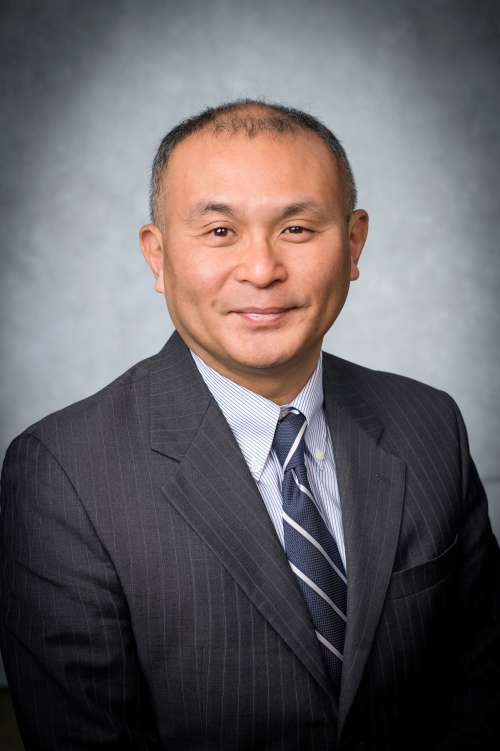The University of Alabama at Birmingham (UAB) provides an ACGME accredited, one year, neuromuscular medicine fellowship program. Our fellowship offers comprehensive training in clinical neuromuscular evaluation, electrodiagnostic tests, and muscle and nerve histopathology interpretation. Our faculty expertise and institutional resources cover all aspects of adult and pediatric neuromuscular disease. Opportunities exist to participate in intramural or extramurally funded basic, translational, and clinical research projects. This program can be tailored toward individuals interested in academic or private practice careers.
Clinical Care
Fellows will provide clinical care in a predominately outpatient setting. They will be responsible for evaluating and diagnosing adult and pediatric patients with neuromuscular disorders. They will see patients in general neuromuscular clinics as well as specialty clinics such as the ALS Clinic, the adult MDA Clinic located at The Kirklin Clinic, and the pediatric MDA Clinic located at the Children’s Hospital of Alabama. These clinics expose fellows to the comprehensive assessment, monitoring, and treatment of neurological disorders involving peripheral nervous systems, including neuropathy, plexopathy, radiculopathy, motor neuron disease, neuromuscular junction transmission disorder, and myopathy, both in adults and children.
Fellows will perform and interpret electrodiagnostic tests under faculty supervision. Such techniques include routine nerve conduction studies, blink responses, repetitive nerve stimulation (Jolly test), needle electromyography, and evoked potential studies (visual, brainstem auditory, and somatosensory). This work will take place at the EMG Laboratory located in the Sparks Center at UAB Hospital, and Birmingham VA Medical Center. Evaluation of inpatients with neuromuscular disease is also provided through bedside studies in the hospital or assessment in the EMG Laboratory. Fellows also have an opportunity to learn single fiber EMG.
Interpretation of neuromuscular (muscle, nerve, and skin) pathology is an essential aspect of our fellowship program. Pathology slides are prepared in the Shin J. Oh Nerve and Muscle Histopathology Laboratory which belongs to our division. Fellows will read neuromuscular pathology with an attending physician. They also have an opportunity to learn performing nerve, muscle, and skin biopsies.
UAB has established the Autonomic Lab, and provides comprehensive tests. Fellows are encouraged to learn its interpretation, as well as the diagnosis of patients with suspected disorders of the autonomic nervous system.
Fellows will teach neurology residents for general neurology evaluation and management at the Cooper Green Mercy Hospital, under the supervision of an attending physician.
Research
Fellows are encouraged to participate in one or more research projects under the direction of the neuromuscular division faculty. The project can be selected by the fellow to meet specific interests and goals. There are several ongoing clinical trials in myasthenia gravis, ALS, and CIDP that fellows could actively participate in. Guided by career goals, opportunities exist to participate in basic and translational science projects in neuromuscular medicine. Based on initial progress and productivity, grants to support early stage career development will be sought from extramural sources such as the National Institutes of Health. All fellows will participate in a quality improvement project as well.
Other Educational Activities
Fellows actively participate in weekly neuromuscular lectures. They start from core lectures for 2 months, followed by basic lectures for 4 months, and then advance lectures for 6 months. They also include presentations by fellows. In addition, weekly conferences in neuromuscular pathology provide further educational opportunities with access to over 40-years of specimens.
Expectations
Full licensure in the State of Alabama (State of Alabama medical license, Alabama Controlled Substance Certificate, and Federal DEA) is required to participate in this fellowship program. Successful completion of all three steps of the USMLE is necessary for Alabama licensure.
During the course of the fellowship, it is expected that fellows will demonstrate progressively increased subspecialty knowledge and progress towards clinical independence by the end of their training. Fellows will have frequent discussions with the neuromuscular faculty related to the clinical care, specialized evaluation, and diagnosis in inpatient and outpatient settings. Through this extensive training program, fellows will accumulate experience and knowledge to practice in academic or private settings.
Subject to the approval of the Director, attendance of one national meeting such as American Association of Neuromuscular and Electrodiagnostic Medicine, American Academy of Neurology, or American Neurological Association is encouraged. A maximum of $1000 is allotted from the Department of Neurology for approved travel and educational expenses, licenses, etc., during the year of training.
To Apply
Our fellowship program participates in the AANEM Fellowship Match program. Please submit your initial application and supporting documents noted below through the AANEM Fellowship Match Portal.
Application components:
- CV
- A personal statement that includes:
- Reasons for application
- Career plans
- How the fellowship will promote your career
- Letters of recommendation from three faculty references, preferably from those familiar with your professional abilities. One letter should be from your Residency Program Director or Department Chair.
Contact Info
For more information, please contact: Kenkichi Nozaki, M.D., Ph.D.
Kenkichi Nozaki, M.D., Ph.D.
Professor of Neurology
Director, Neuromuscular Fellowship Program
P: (205) 934-2120 | knozaki@uabmc.edu
Sandi Mumfrey Thomas
Program Coordinator
P: (205) 934-2120 | smumfrey@uabmc.edu